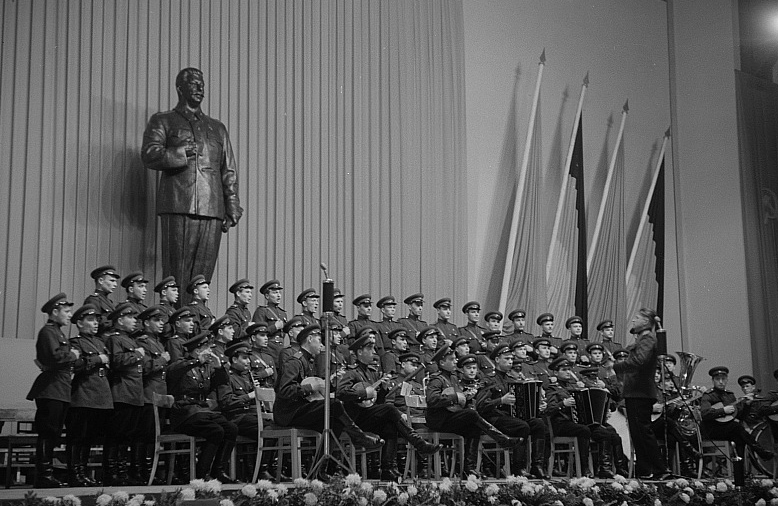I teach modern history to 7th and 8th graders. On a daily basis, we discuss justice, good, evil, tyranny, leadership, and heroic deeds in the modern world.
Drumming up examples of cruel tyranny for discussion purposes, my students automatically reference Nazism’s Holocaust and the 6 million Jews who were killed, a truly horrifying historical event. Yet they rarely think to mention the 100 million victims of communism—by far the deadliest political ideology ever.
On a global scale, there seems to exist something of a cultural amnesia regarding the nature and history of communism. Certainly we recall that Stalin was “bad,” but how many of us realize that the threat of communism still lurks in many parts of the world today? In fact, 20 percent of the world currently lives under a form of a communist regime.
Many possess cursory knowledge of the fall of the Berlin Wall. Yet there are countless other significant, touching stories about the reality and experience of communism that have largely been ignored by history—or not told for lack of research.
One organization in the philanthropic world is addressing—and confronting—this forgetfulness.
The Victims of Communism Memorial Foundation was founded in 1994 and signed into law by President Clinton with the simple purpose to remind the world about the story of communism. The foundation tells the real stories of real heroes and creative dissidents in Russia, Ukraine, Vietnam, China, and elsewhere. A bipartisan effort, the foundation receives no funding from the U.S. taxpayer.
One of the foundation’s most beautiful projects is the annual Truman-Reagan Medal of Freedom, awarded primarily to unrecognized and unknown heroes in the anti-communism movement. Catholic priest Father Nguyen Van Ly recently received the medal. Yet at the awards ceremony, his seat was empty: Father Van Ly is still imprisoned in Vietnam for his pro-democracy “dissidence.”
The foundation maintains a frequently updated website and social media presence. The forthcoming “Witness” project will share stories of survivors of communism, and a curriculum on the ideology, history, and legacy of communism is currently available for use in high schools. Finally, the Foundation maintains a memorial replica “goddess of democracy” statue in Washington, DC, the only visible memorial for communism’s victims in America today.
This year marks the twentieth anniversary of the foundation’s founding, as well as the twenty-fifth anniversary of the Berlin Wall’s fall and the Tiananmen Square episode. As part of a forthcoming capital campaign, the foundation will build a large-scale museum in the nation’s capitol to preserve and share the stories of survivors and victims of communist regimes. A vast collection of research, artifacts, and living history, the museum will attract visitors and tourists, as well as students and research scholars. Already, many former communist bloc nations have offered to donate items and help fund the project.
The anti-communist movement of course began in the 1950s in part with the publication of Whittaker Chambers' Witness. I read excerpts in college and was struck then, as I am now, by what Chambers wrote—and what the foundation now declares: Communism is essentially built upon a dangerous lie.
Communism’s promise of security, unity, and equality sounds great. It’s a compelling lie that has implications for understanding human nature, human freedom, and the human spirit. And as a lie, resistance becomes a moral, cultural, and even spiritual issue. The anti-communist victors won a victory of culture and humanity, not simply of politics and law.
Should we be worried about this grandiose historical ideology today? Yes. In a sense, there will always be threats to liberty. The basic ideas of communism still circulate today. The portrait of communist guerrilla visionary Che Guevara is the most-reproduced image in the history of photography.
Moving forward, the Victims of Communism Memorial Foundation believes that Americans must reflect on the true lessons of communism.
For the preservation of liberty and freedom—and for defense against the basic totalitarian ideas of communism—the institutions of civil society are vital. Like most noble enterprises, the defense of freedom starts in our own backyard. Any organization, formal or informal, outside the state is a bulwark against totalitarianism. In a sense, my students’ chess club is even a threat to totalitarian power--but beware!
Though the rising generation shows some movement towards liberty, by and large we lack living memory of communism and its immediate threat to freedom. Totalitarianism and lies must be recognized if we are to preserve our freedom. But we cannot recognize the political lies if we do not know well the truth.
Communism failed because it did not work. Men and women, as it turns out, actually like to be free. An economics professor from my college cites the wisdom of Tom Petty: “You don’t have to live like a refugee.”
Remembering the past is an important human endeavor. My generation needs a reminder of the real facts of the twentieth century. The Victims of Communism Memorial Foundation is a vital step in this remembrance.





